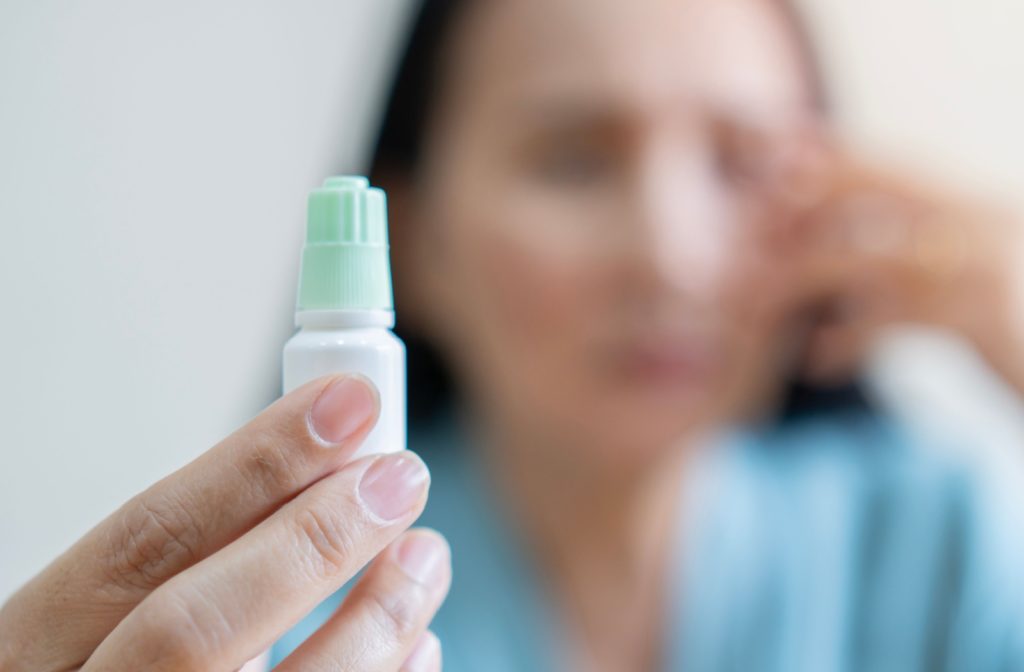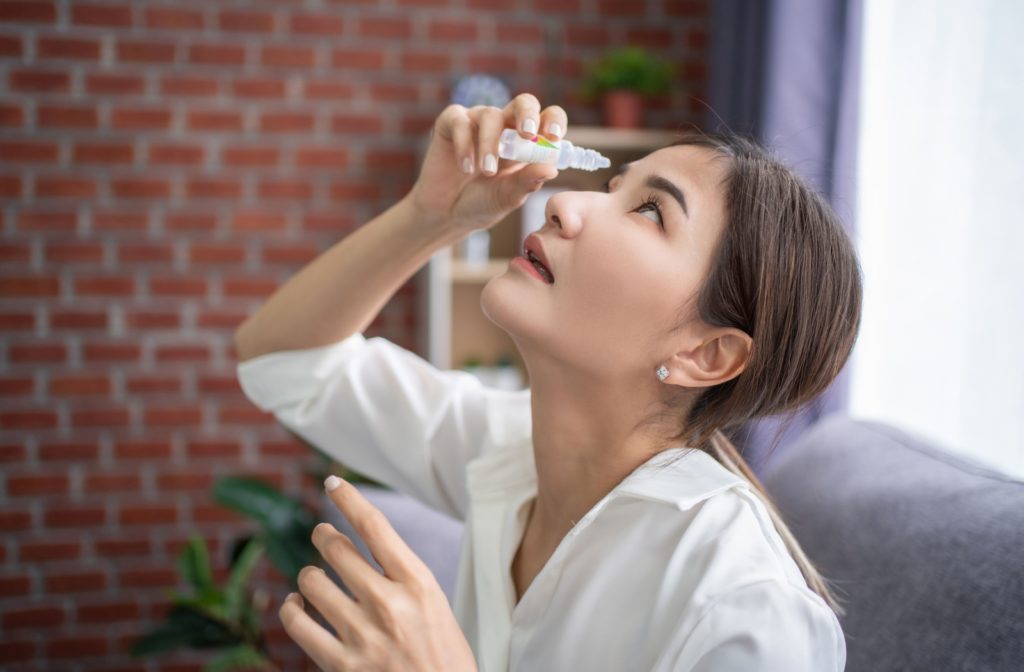Many of us are familiar with the struggle of squinting at distant signs or bringing texts up close to read clearly. This is a classic sign of myopia, or nearsightedness, a condition that seems to be on the rise, especially among young people.
But don’t worry! There’s a tool in eye care and myopia management: atropine eye drops. Atropine can help slow the progression of myopia by relaxing the eye’s focusing muscles and influencing the eye’s growth mechanisms.
What Is Myopia?
Myopia, or nearsightedness, is a common eye condition where distant objects appear blurry while close ones can be seen clearly. It’s primarily due to the elongation of the eyeball, causing light rays to focus in front of the retina instead of directly on it.
Myopia often develops in childhood and can progress with age. The increase in screen time and less outdoor activity have been linked to the rising prevalence of myopia.
This condition isn’t just inconvenient—it can lead to more serious issues like retinal detachment if not managed properly.
For those living with myopia, everyday tasks like driving or watching a movie can become challenging. But modern solutions are making life easier for those with this condition.
What Are Atropine Eye Drops?
Atropine eye drops are a medical treatment traditionally used to dilate the pupil and relax the eye’s focusing muscles for diagnostic procedures. Lower doses of atropine have been found to slow down the progression of myopia in children and young adults.
While not a cure, they serve as a tool to manage the condition and minimize its impact on daily life. Atropine eye drops are usually prescribed by an eye care professional and administered nightly. They offer a promising option for those looking to manage myopia more effectively.
How Atropine Helps with Myopia
The main job of atropine eye drops in myopia management is to slow down the elongation of the eyeball. But how exactly does it do this? By relaxing the eye’s focusing muscles and affecting the growth mechanisms of the eye, atropine can help slow down the advancement of myopia.
It’s worth noting that while atropine eye drops are most effective for children and young adolescents, they can still provide benefits for adults.
Combining atropine treatment with lifestyle changes, such as increased outdoor activities and limiting screen time, can further enhance its effectiveness.
Potential Side Effects of Atropine Eye Drops
While atropine eye drops can be beneficial, it’s important to be aware of potential side effects. Some users may experience mild symptoms such as sensitivity to light or difficulty focusing on near objects.
These side effects are generally temporary and can often be managed with sunglasses or adjusting the lighting in your environment. However, if any discomfort persists, it’s important to consult with your eye care provider.

How Long Does Treatment Take?
The course of treatment with atropine eye drops varies depending on the individual and the severity of their myopia. Typically, treatment can last 2—3 years, with regular check-ups every 6 months to assess progress and adjust the dosage if needed.
Consistency in using the drops is key to achieving the best results. Starting treatment early, particularly in children, can yield more significant benefits in slowing myopia progression.
Other Myopia Treatments
While atropine eye drops are a popular option, they are not the only treatment available for myopia.
- Prescription glasses and contact lenses are essential tools for correcting vision and enhancing overall eye health.
- Orthokeratology involves the use of specialized overnight lenses that gently reshape the cornea while you sleep, providing clear vision during the day without the need for glasses or contacts.
- Refractive surgery includes procedures such as LASIK or PRK, which permanently alter the shape of the cornea to improve vision. These surgical options can significantly reduce or eliminate the dependency on glasses and contact lenses.
Are other options that can help manage or correct myopia. Each treatment has its pros and cons, and the best choice depends on your needs, lifestyle, and age.
Combining traditional treatments with atropine drops can sometimes offer enhanced benefits, providing a comprehensive approach to managing myopia.
Why You Need Regular Eye Check-Ups
Regular eye check-ups are important for everyone, especially those with myopia. These appointments allow your eye care provider to monitor changes in your vision, adjust treatments as necessary, and detect any potential complications early on.
Regular visits ensure that your treatment plan remains effective and keeps you informed about the latest advancements in myopia management. Early detection of changes can lead to more successful outcomes and prevent further deterioration of your vision.
Have More Questions About Myopia Management?
Myopia management can feel overwhelming, but you’re not alone. Our team at Total Vision Richmond is here to support you on your journey to better vision health.
If you’re interested in learning more about atropine eye drops or other myopia treatments, consider booking an appointment with our experienced team. We can provide personalized advice tailored to your needs and help you take the next steps toward clearer vision.


